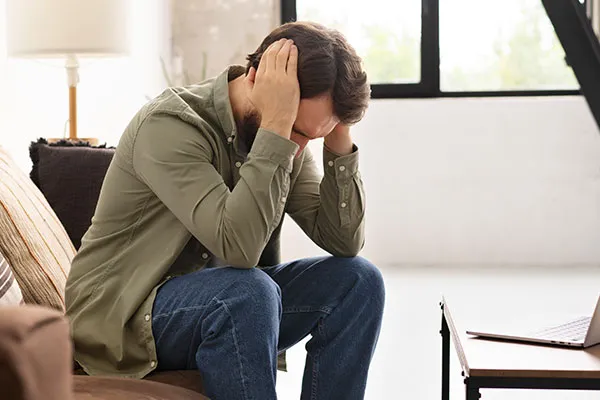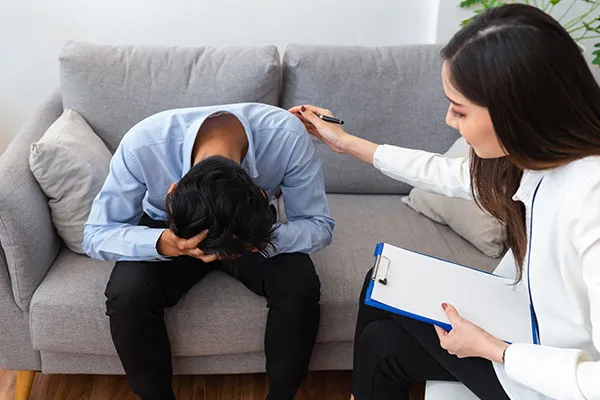


For individuals with agoraphobia, everyday situations like travelling, visiting crowded places, or even leaving home can feel overwhelming. What begins as anxiety or panic in specific settings may gradually lead to avoidance and isolation. At Kriteyu Health Care, we help you gently rebuild confidence and comfort through personalised, psychiatric-led treatment.
Agoraphobia is more than just a fear of open spaces. It’s the fear of being in situations where escape may be difficult, or help may not be available during a panic-like experience. This condition often develops after repeated panic attacks and can significantly restrict a person’s freedom, relationships, and quality of life.
Common situations people with agoraphobia avoid:
Some individuals may become so distressed that they avoid leaving home altogether, a pattern that can lead to emotional and physical health complications.
Agoraphobia typically arises from a combination of psychological and environmental factors, including:
Our clinical assessment process is designed to help uncover the unique roots of your experience so that treatment is both accurate and compassionate.
Treatment for agoraphobia focuses on gently reducing fear, rebuilding confidence, and restoring independence. Each care plan is crafted based on the individual's needs, challenges, and pace of recovery.

You may benefit from professional care if:
Early support can prevent the condition from worsening and empower you with tools to regain control.

Led by Dr. Krishna Thalagavara, we provide evidence-based care rooted in psychiatry and psychological science.

We understand how overwhelming fear can be. Our pace is guided by your comfort, ensuring you feel supported throughout.
If leaving home is difficult, we offer secure teleconsultations to begin your treatment journey from where you are.
Agoraphobia doesn’t have to define your world. With the right support and therapeutic tools, it is possible to feel safe, calm, and confident again both inside and outside your home.
Not exactly. It’s the fear of being in places where escape might be difficult or where help might not be available during a panic attack. It can involve both open and closed Spaces.
Yes, many individuals benefit from therapy alone. If needed, medication can support the process, but we always tailor treatment based on your preferences and response.
Recovery times vary, but many see improvements within weeks to months with consistent therapy and support. Gradual exposure and regular follow-ups help build lasting change.
Absolutely, agoraphobia is more common than many realise. Our environment is non-judgemental and supportive.
Yes. We offer telehealth sessions to help you begin treatment comfortably and build confidence at your pace.